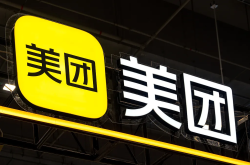Alibaba’s renewed push into international e-commerce: a pivotal moment for Jiang Fan’s comeback?
![]() 09/26 2024
09/26 2024
![]() 511
511
Alibaba is making another big move in its international expansion.
On September 23, Tmall announced an internal strategic upgrade, with international growth becoming a key focus.
The upgrade in Tmall’s international strategy is not surprising. Companies like Shein and Temu have achieved significant success overseas, and even TikTok has ventured into cross-border e-commerce, indicating that there is still ample opportunity in the international market.
In fact, Alibaba was one of the earliest Chinese internet companies to venture overseas.
In 2010, Alibaba began laying the groundwork for its cross-border e-commerce platform, AliExpress, and over the years, it has built its own logistics system abroad.
While Alibaba has been planting trees for future generations to enjoy, it's worth reflecting on the fact that newer players like Shein and Temu have managed to capture a significant share of the international market.
Internally, Alibaba’s international business only contributes 11% to the company’s overall revenue, which, while not insignificant, is certainly not a dominant share. However, this year has been different. In the second quarter, Alibaba’s international business showed promising growth, with revenue increasing by 53% year-on-year, significantly outperforming its domestic operations.
For Alibaba, being surpassed by Pinduoduo in size represents a significant strategic setback and requires introspection and adjustment. With the new appointments of Joe Tsai and Wu Yongming, Alibaba needs to refocus on its core e-commerce business and find a new path for growth.
The renewed push into international markets is a crucial strategic direction for Alibaba as it seeks to revitalize its core business. However, whether the international business can shoulder this responsibility remains to be seen.
How likely is Alibaba to succeed in its renewed international push?
Alibaba’s international business has faced some challenges in recent years.
On one hand, Alibaba has always prioritized its domestic e-commerce operations, competing fiercely with JD.com and Pinduoduo. On the other hand, in the cross-border e-commerce space, Alibaba has laid a solid foundation, yet players like Shein and Temu have emerged as formidable competitors.
How quickly has Shein risen to prominence?
According to Tianyancha’s financing data, Shein completed its G+ round of funding in May last year, valuing the company at $66 billion.

Interestingly, despite being founded in Nanjing and growing in Guangzhou, Shein’s founder Xu Yangtian remains one of the most mysterious CEOs, and the company itself is known as one of the most enigmatic in the industry. Shein’s business model involves selling goods from China, similar to that of Temu and AliExpress.
The faster Shein grows, the more anxious Alibaba may become.
Compared to the rapid growth of Shein and Temu, AliExpress, while still showing positive growth, has seen its luster dimmed. This has contributed to Alibaba’s international business not standing out as brightly as it could.
In terms of Alibaba’s international operations, platforms like Tmall Global, AliExpress, and Lazada serve as key gateways for the company’s overseas expansion. In these markets, Tmall’s renewed push will likely begin with its strength in apparel, a category in which it has deep expertise and supply chain integration.
At first glance, a “fashion-first” strategy seems reasonable, given Tmall’s strengths in this area. However, transitioning from apparel to a full-category e-commerce platform poses significant challenges.
While Alibaba excels in branded supply chains and infrastructure, Shein and Temu may enjoy higher brand recognition among overseas consumers.
In e-commerce, it is often difficult to expand beyond a brand’s initial niche due to consumer perceptions and category associations. However, Shein and Temu have been able to successfully expand their offerings by accurately gauging shifts in consumer demand.
The rise of Shein and Temu can be attributed not only to their semi-managed business models but also to changes in consumer behavior in overseas markets. With high unemployment rates, consumers are becoming more budget-conscious, making the more affordable offerings of Shein and Temu more competitive than Amazon.

One of the reasons for AliExpress’s solid growth in 2023 was its swift response to Lazada’s decision to withdraw from full-service management with its Choice service. By January of this year, half of AliExpress’s orders were generated through Choice, which offers extreme value for money, including free shipping, free returns, and delivery guarantees.
This highlights the importance of pricing power in the overseas market. When consumers prioritize price, platforms without pricing power may struggle to compete effectively.
Therefore, for Alibaba to succeed in its international expansion, it must regain pricing power in overseas markets.
Regaining pricing power ultimately depends on Alibaba’s performance in the domestic market.
One reason Alibaba’s market value was surpassed by Pinduoduo is that the latter offers more affordable prices. In the past, Alibaba’s “Tmall-centric” strategy may have inadvertently compromised the price competitiveness of its Taobao platform.
It is worth noting that while brands on Tmall have always had control over their pricing, insufficient consumer demand has rendered pricing less meaningful. For instance, when a pair of Nike shoes sells for 300 yuan in a livestream, the official flagship store’s price tag of 500 yuan becomes less relevant.
Conversely, platforms that connect directly with factories and surplus inventory can quickly capture new markets by offering lower prices. This is a key factor behind the growth of both Pinduoduo and Vipshop.
Whether Alibaba’s recent initiatives, such as the “Global Free Shipping Program for Apparel” and the “Industrial Go-Global” strategy on its international platform, truly grant the company pricing power in the market remains to be seen.
This is a question that Alibaba’s management must seriously consider.
Alibaba’s renewed push into international markets faces numerous challenges and difficulties. The company’s approach to breaking this stalemate is to strengthen its supply chain first.
Unlike the managed business models of Temu and Shein, Tmall aims to attract merchants by allowing them to set their own prices, eliminating the need for them to open separate stores. This strategy may attract some merchants, but the question remains whether these merchants can compete price-wise against Temu and Shein.
Can simply replicating Taobao and Tmall overseas be enough to capture the international market? These questions will need to be answered by market feedback.
For merchants, if a platform lacks strong overseas competitiveness, even if it offers low operating costs and a “one-click global expansion” solution, without sufficient orders and pricing competitiveness, it may not be as attractive as opening stores on other platforms.
Ultimately, the success of Alibaba’s international expansion will depend on whether platforms like AliExpress can generate significant traffic and attract orders. In the meantime, Alibaba may need to heavily subsidize merchants to grow its international business.
A pivotal moment for Jiang Fan’s comeback
Whether Alibaba succeeds in its international expansion ultimately comes down to its people and organizational structure.
In the realm of e-commerce, defending Alibaba’s domestic market is challenging enough, but its true test lies in its international expansion. Jiang Fan’s role in this endeavor is crucial.
Jiang Fan’s capabilities are undeniable. Before his personal scandal, he was widely seen as a potential successor to Alibaba’s leadership.
Wang Xing, the founder of Meituan, once commented, “If Jiang Fan successfully defeats Pinduoduo in the battle for e-commerce supremacy, he will undoubtedly be the rightful heir to Alibaba’s CEO position.”
However, Jiang Fan’s personal scandal led to his removal from Alibaba’s partnership and a demotion in rank. While the punishment was severe, it was widely seen as a public relations move by Alibaba.
The outcome of Alibaba’s battle with Pinduoduo is clear: Pinduoduo has surpassed Alibaba in size. This setback prompted Alibaba to refocus on its core e-commerce business, with Ma Yun publicly stating that the company must return to its roots in Taobao.
Looking back, while Jiang Fan’s punishment was severe, it may have also served as a form of “protection.” Ultimately, it was Alibaba’s former leader Daniel Zhang who bore the brunt of the company’s performance issues.
As everyone knows, Daniel Zhang subsequently stepped down, with Joe Tsai and Wu Yongming taking over. Ma Yun personally intervened, vowing to steer Alibaba back on the right track.
The challenges facing Alibaba may not lie solely in personnel changes but in the company’s ability to regain its grasp on market trends. This is a manifestation of “big company syndrome,” rooted in organizational and cultural issues.
At the top of any large company’s hierarchy lies its values. However, in the face of tangible performance metrics, values often take a backseat. This has led to short-term goals trumping long-term interests, as evidenced by Alibaba’s decision to prioritize performance over values in the case of Jiang Fan.
By placing Jiang Fan at the helm of Alibaba’s international business, the company is not only giving him a chance to redeem himself but also aiming to expand its territory, similar to how Baidu tasked Shen Zhou with leading its AI cloud business.
Whether Alibaba, with its current size and organizational structure, is capable of this expansion remains to be seen. This is a question that not only Alibaba but all major companies will eventually face. As organizations grow, their structures become bloated, making it difficult to fundamentally reshape their competitiveness through mere structural changes.
For Jiang Fan, succeeding in Alibaba’s international business is crucial not only for the company but also for his personal career. It could be a pivotal moment in his comeback story.
How has Jiang Fan fared in leading Alibaba’s international business? So far, the results have been promising.
In Southeast Asia, Jiang Fan appointed Dong Zheng as CEO of Lazada, which subsequently became a major driver of AliExpress’s order growth last year.
However, can Jiang Fan alone take credit for Lazada’s success in Southeast Asia? Perhaps not entirely.
Southeast Asia presents unique characteristics that make it an attractive market for Alibaba. Culturally, the region shares similarities with China, and its youthful population resembles the domestic market a decade ago. Applying Alibaba’s proven strategies and localizing them to the Southeast Asian context has yielded positive results.
Moreover, Alibaba’s acquisition of Lazada provided a strong foundation for its entry into the region, minimizing the need for significant investments in building from scratch.
However, the question remains whether Southeast Asia’s success can be replicated globally against competitors like Temu, Shein, and TikTok Shop.
Expanding from Southeast Asia to the global market will be a tough battle for Jiang Fan and Alibaba. Infrastructure investments and localization challenges persist. Yet, the most pressing issue Jiang Fan must address is traffic acquisition.
A key difference between domestic and overseas markets is the lack of a super-app like Alipay to drive traffic for Alibaba overseas. In contrast to the domestic market, where Alipay alleviates traffic concerns, overseas markets rely heavily on paid traffic sources like Google, Facebook, and TikTok, which control search, social, and content traffic.
The momentum of Temu and Shein is undeniably strong.
Conversations with friends living abroad reveal that, apart from Amazon, Temu and Shein are the most recognized e-commerce brands among foreigners. While AliExpress is also known, younger consumers tend to prefer Temu and Shein.
Another disruptive player is TikTok. If TikTok significantly expands its e-commerce efforts, it could pose an even greater threat to Alibaba than Temu and Shein.
Drawing parallels from the domestic market, the intense competition is not only due to waning consumer demand but also to Pinduoduo capturing Taobao’s core user base, while live-streaming platforms like Douyin and Kuaishou siphon off potential incremental revenue for Tmall.
In the overseas market, will TikTok eventually capture Alibaba’s share of incremental growth? If TikTok, with its strong content capabilities, shifts its commercial focus to e-commerce, how will Alibaba respond? This is a question worth pondering.
While conducting e-commerce overseas differs from the domestic market, there are also similarities.
As the domestic e-commerce landscape evolves towards content-driven commerce, the overseas market will eventually embrace this trend. The question then becomes: how will Alibaba’s international business, lacking a strong traffic source, navigate this shift?
Faced with a rapidly changing market, Alibaba’s options may seem limited. Today’s Alibaba is no longer the company Jiang Fan once led in its e-commerce dominance.
The path to international expansion is treacherous, and Alibaba has no choice but to press forward. Breaking through the challenges of e-commerce expansion overseas, though daunting, is a necessary journey for the company.




